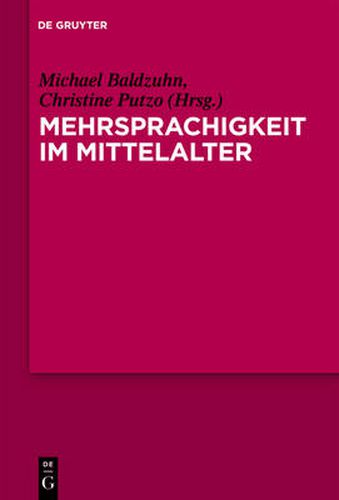Readings Newsletter
Become a Readings Member to make your shopping experience even easier.
Sign in or sign up for free!
You’re not far away from qualifying for FREE standard shipping within Australia
You’ve qualified for FREE standard shipping within Australia
The cart is loading…






This title is printed to order. This book may have been self-published. If so, we cannot guarantee the quality of the content. In the main most books will have gone through the editing process however some may not. We therefore suggest that you be aware of this before ordering this book. If in doubt check either the author or publisher’s details as we are unable to accept any returns unless they are faulty. Please contact us if you have any questions.
Kommunikation und literarische Produktion des Mittelalters waren Bestandteil einer komplexen sprachlichen Situation. Latein, die westeuropaische Bildungs- und Verwaltungssprache, stand im Gegensatz zu den Volkssprachen, die sich ihrerseits in verschiedene Dialekte spalteten. Regelmassig existierten zudem unterschiedliche Volkssprachen auf gleichem geographischem Raum. Der Sammelband nahert sich diesem bisher nicht systematisch erschlossenen Themenfeld aus interdisziplinarer Perspektive. Er behandelt methodologische Grundsatzfragen sowie sprachliche und literarische Zeugnisse vom 8. bis ins 16. Jahrhundert.
$9.00 standard shipping within Australia
FREE standard shipping within Australia for orders over $100.00
Express & International shipping calculated at checkout
This title is printed to order. This book may have been self-published. If so, we cannot guarantee the quality of the content. In the main most books will have gone through the editing process however some may not. We therefore suggest that you be aware of this before ordering this book. If in doubt check either the author or publisher’s details as we are unable to accept any returns unless they are faulty. Please contact us if you have any questions.
Kommunikation und literarische Produktion des Mittelalters waren Bestandteil einer komplexen sprachlichen Situation. Latein, die westeuropaische Bildungs- und Verwaltungssprache, stand im Gegensatz zu den Volkssprachen, die sich ihrerseits in verschiedene Dialekte spalteten. Regelmassig existierten zudem unterschiedliche Volkssprachen auf gleichem geographischem Raum. Der Sammelband nahert sich diesem bisher nicht systematisch erschlossenen Themenfeld aus interdisziplinarer Perspektive. Er behandelt methodologische Grundsatzfragen sowie sprachliche und literarische Zeugnisse vom 8. bis ins 16. Jahrhundert.